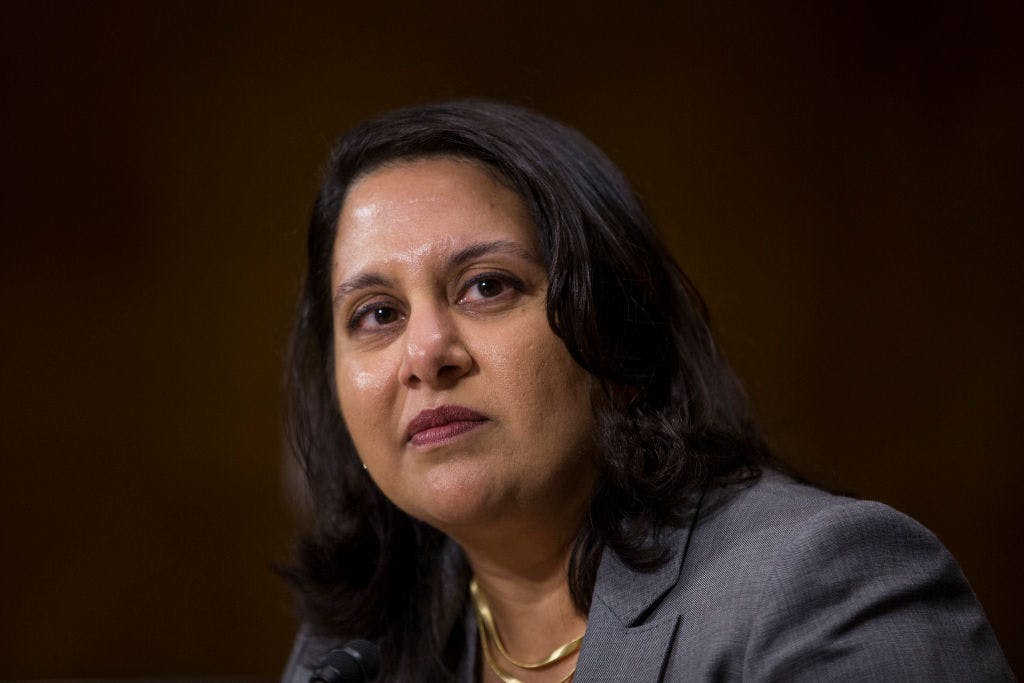Neomi Rao Dons Scalia’s Robe
The rising young sage emerges as a defender of the presidency and its privileges.

The dissent just penned by Judge Neomi Rao of the United States Court of Appeals for the District of Columbia Circuit championing executive privilege is one to mark. It could provide a blueprint for a Supreme Court decision that redraws the perimeter of presidential power. It bears all the hallmarks of the work of a jurist, appointed by President Trump, who is on the rise and could one day count herself among the Nine.
Judge Rao’s stand for a strong executive comes in a statement dissenting from the circuit’s denial of an en banc hearing on whether the grant of a search warrant and nondisclosure order to Special Counsel Jack Smith in respect of President Trump’s Twitter/X account was justified. The district court and a panel of the circuit greenlit Mr. Smith against the objections of both Mr. Trump and X née Twitter. Both cited the First Amendment.
Judge Rao sees the case differently, as one about the nature of the presidency itself. Casting herself as a defender not of Mr. Trump or Mr. Musk’s X but of the constitutional scheme writ large, she stresses that “executive privilege is vital to the energetic and independent exercise of the President’s Article II authority and to the separation of powers.” She calls out Mr. Smith for pursuing Mr. Trump through X rather than the National Archives.
The best dissents, like W.H. Auden’s evaluation of poetry, “make nothing happen,” but are written for the future — Like Justices MacLean and Curtis in Dred Scott, Justice John Marshall Harlan’s in Plessy or Justice Robert Jackson’s in Korematsu. Looking beyond this case’s horizon, Judge Rao addresses “consequential and novel” background questions “about executive privilege and the balance of power between the President, Congress, and the courts.”
Judge Rao’s declaration that she “can find no precedent for what occurred here, namely the court-ordered disclosure of presidential communications without notice to the President and without any adjudication of executive privilege,” lacks only calligraphy to make it a formal invitation to the high court to take up the case. Mr. Smith’s prosecution of Mr. Trump could be hobbled if the justices rule that Mr. Trump’s social media content is off-limits.
Given that Judge Rao clerked for Justice Clarence Thomas, who has long been a practitioner of principle, it should be no surprise that she evinces comfort with dissent. She signals her seriousness, though, not with an allusion to that esteemed jurist, but another — Justice Antonin Scalia, whose understanding of the importance of a robust executive Judge Rao appears to share. Her assumption of this role is a constitutional changing of the guard worth marking.
The Great Scalia’s lone dissent in Morrison v. Olson, opposing the constitutionality of an independent counsel, is a touchstone for those who champion the chief executive. It was thrilling to see Judge Rao cite it in her ultimate paragraph. In respect of the independent counsel, Justice Scalia warned: “This wolf comes as a wolf.” Judge Rao, in a crafty opinion, warns that “not every” predator announces itself. She, fortunately, has done so.

